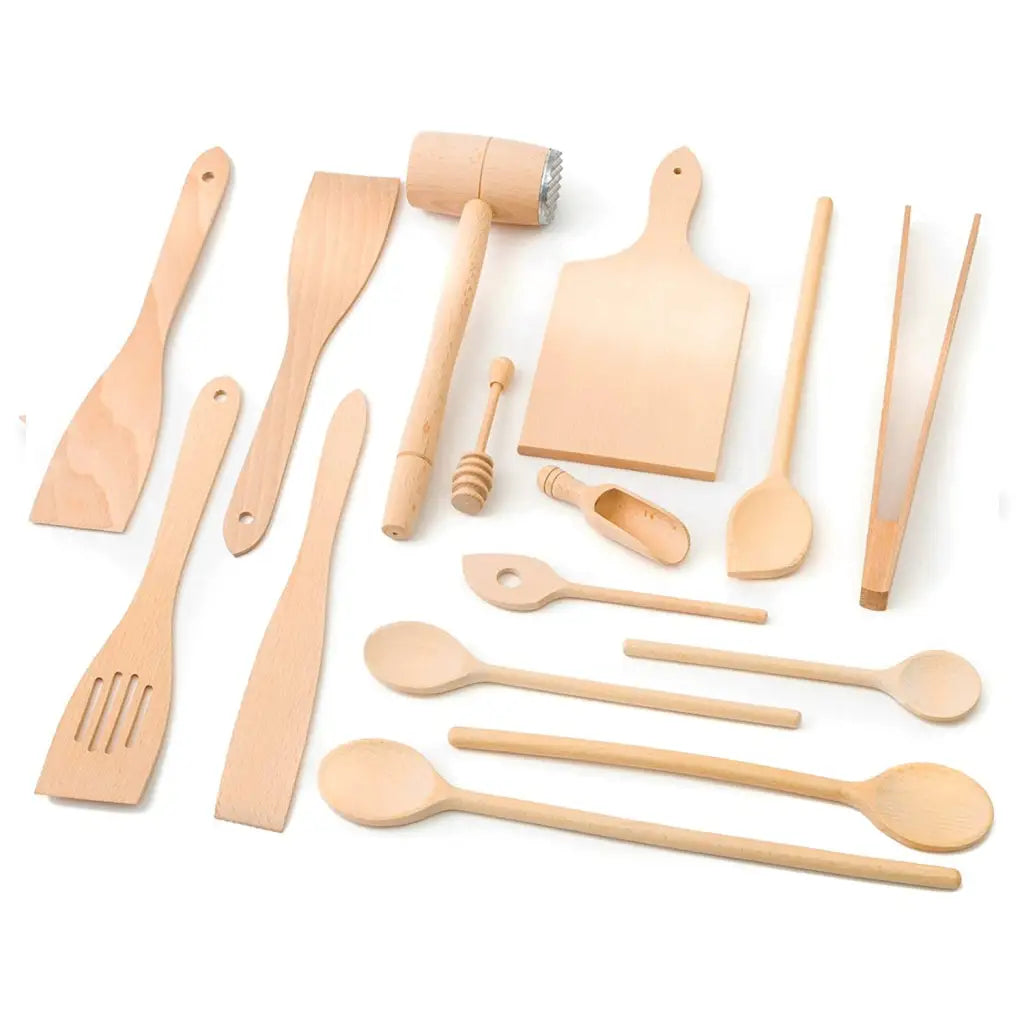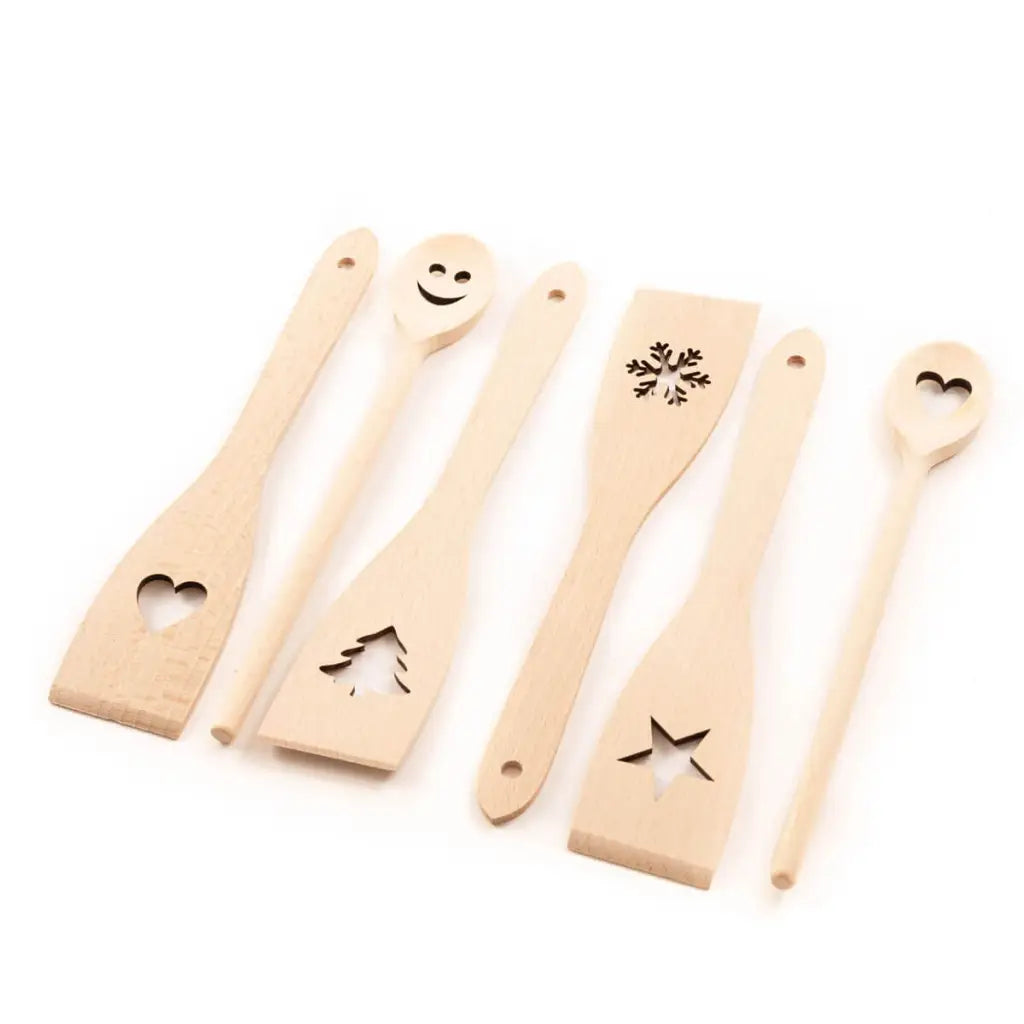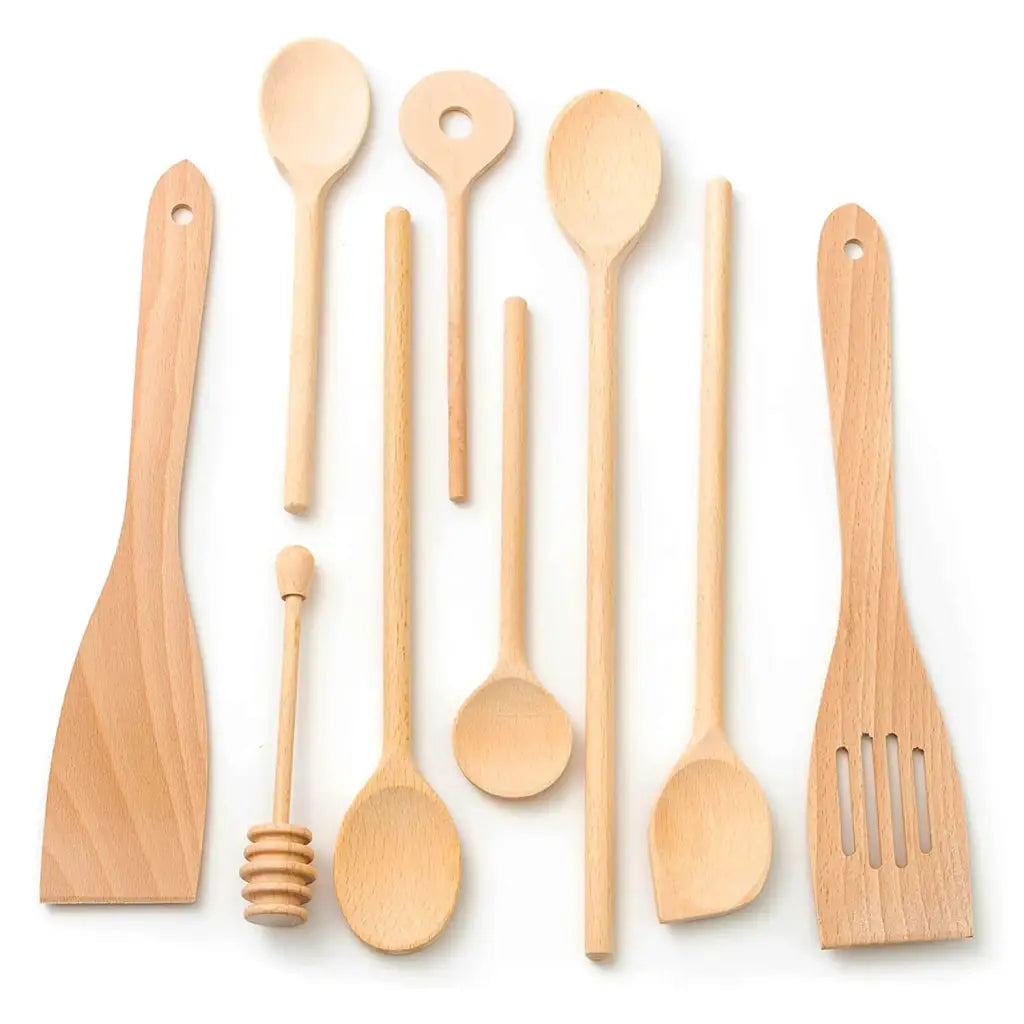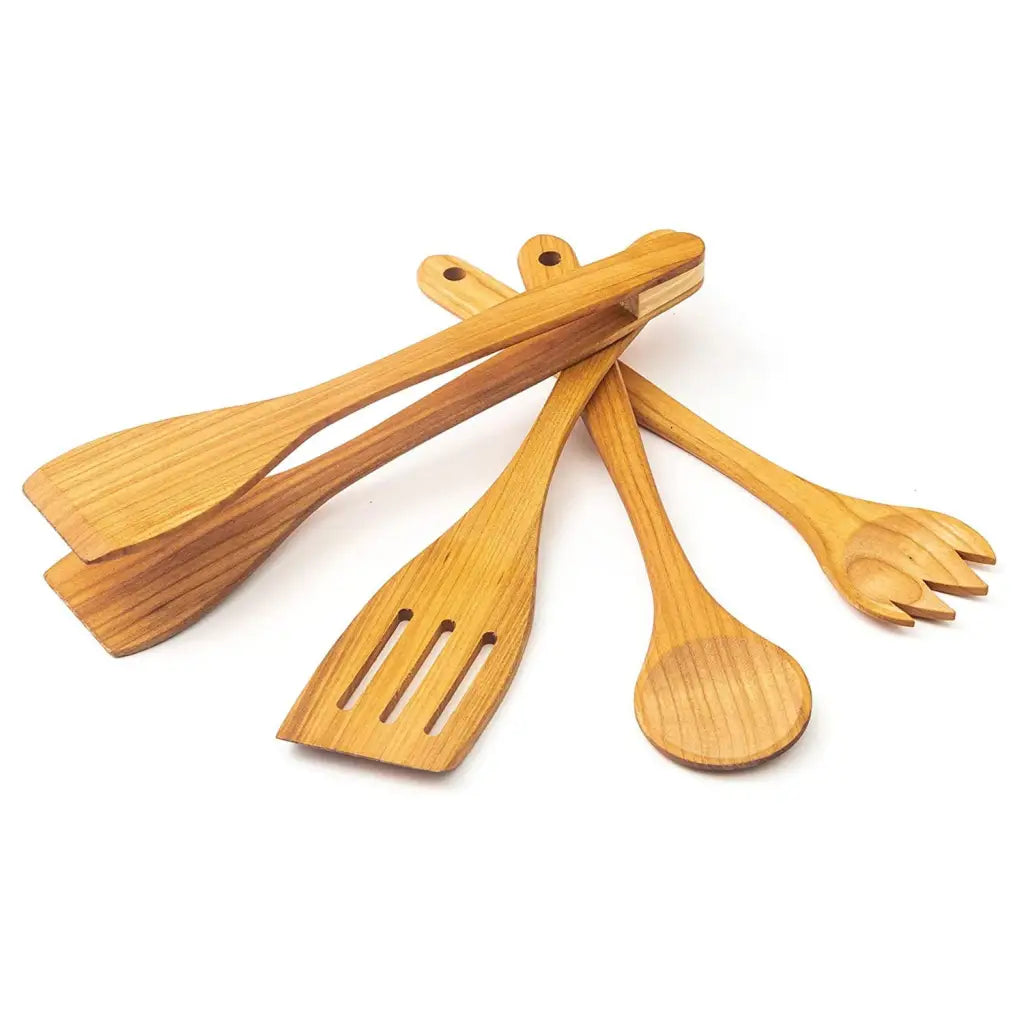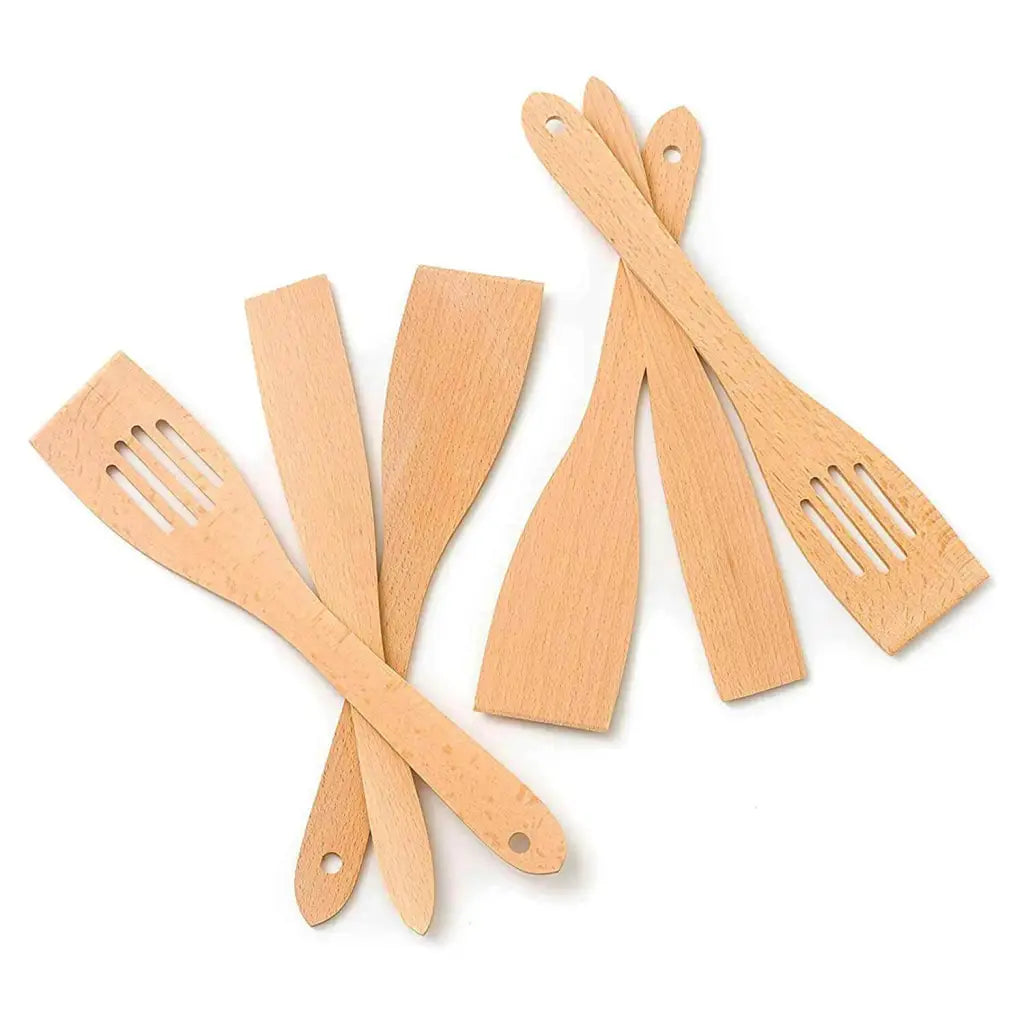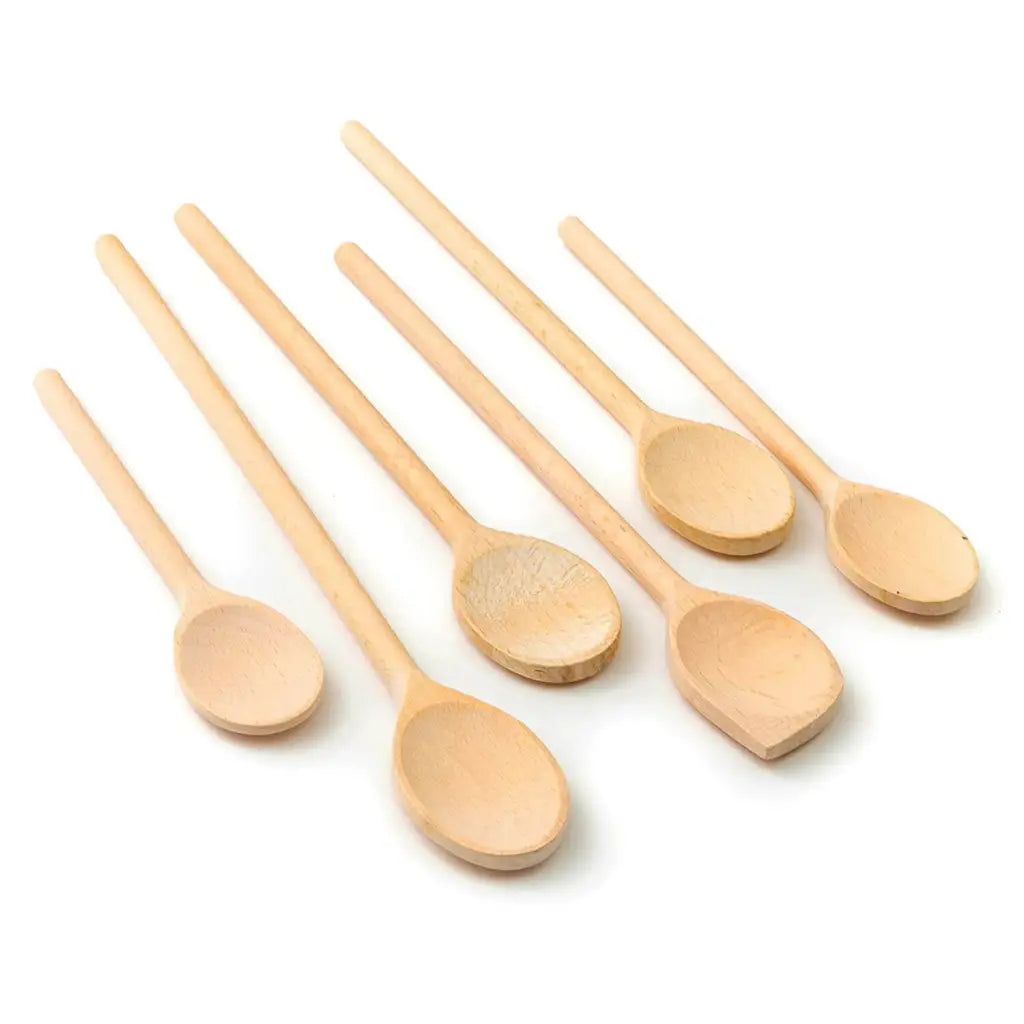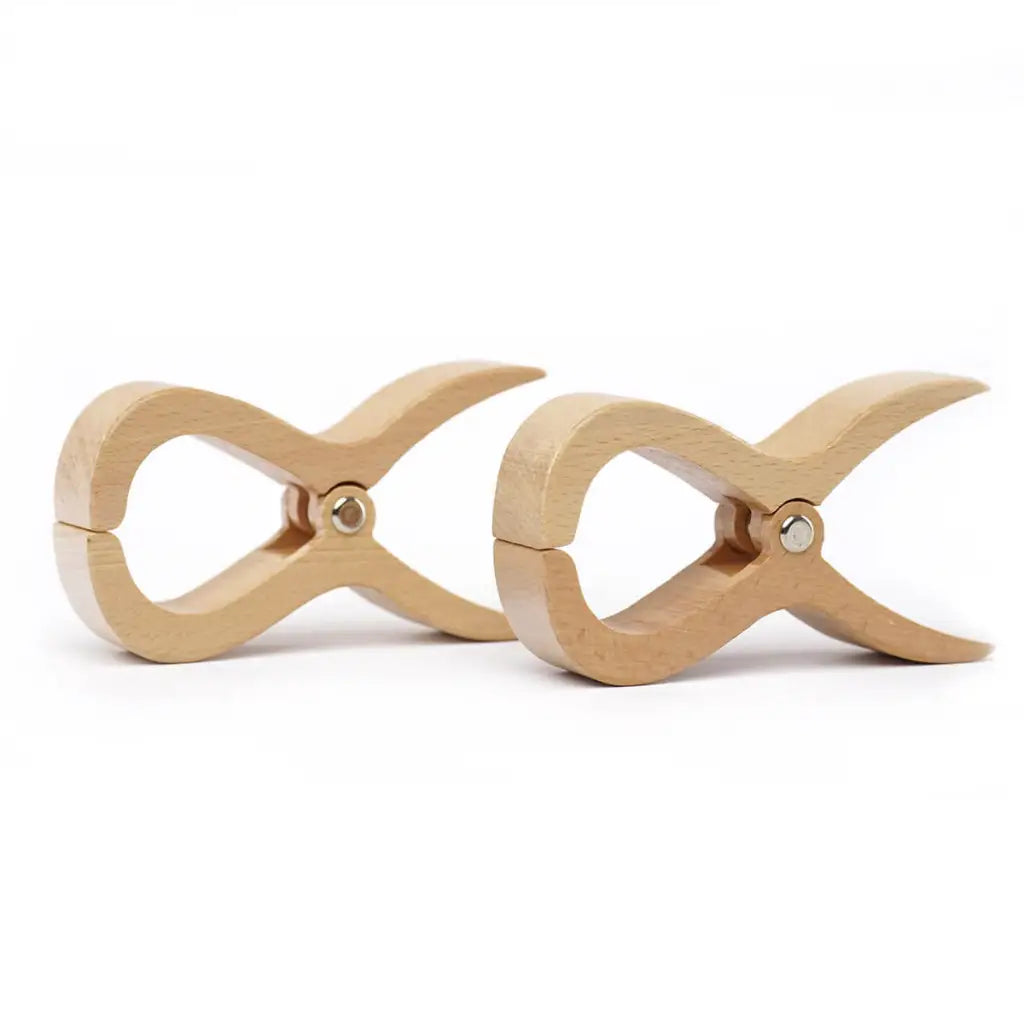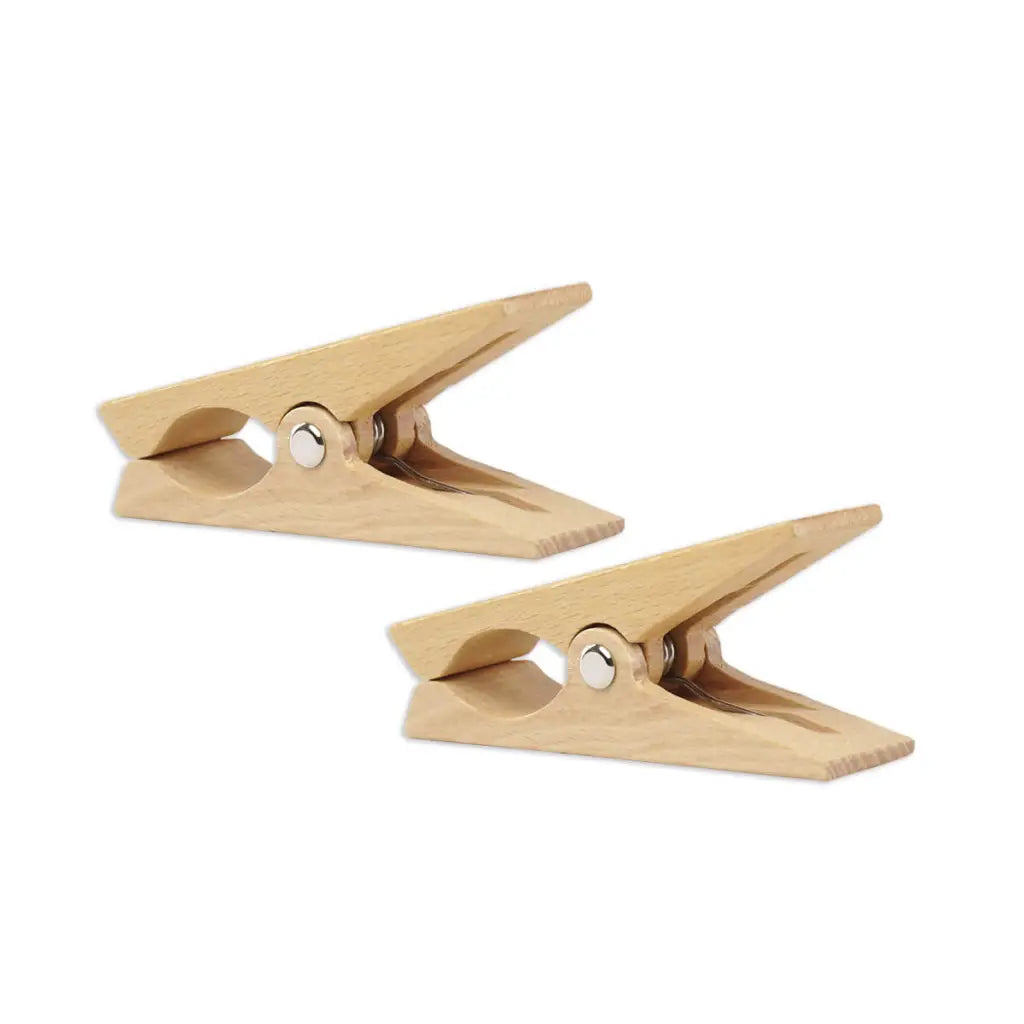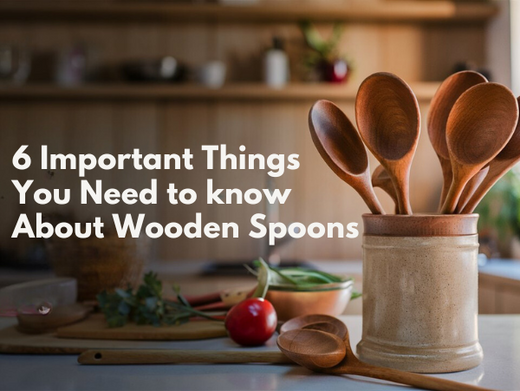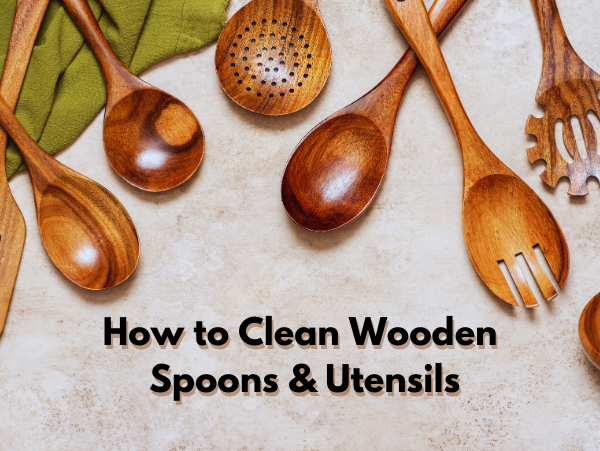
The Ultimate Guide to Wooden Spoons: Your Kitchen's Most Versatile Tool
Why Wooden Spoons Deserve a Place in Your Kitchen
The humble wooden spoon holds centuries of culinary wisdom in its graceful form. These kitchen essentials bring warmth and functionality to cooking, offering benefits that modern utensils simply can't match. Master chefs and home cooks alike reach for wooden spoons when creating their finest dishes, and for good reason.
Wooden spoons start their journey as carefully selected hardwoods - beech, maple, walnut, and cherry. Each variety brings its own character to your kitchen. Beech offers durability and a subtle grain pattern. Maple provides exceptional strength with a light, bright appearance. Walnut delivers rich, dark tones and natural water resistance. Cherry wood brings a warm, reddish hue that deepens beautifully with age.
The Craftsmanship Behind Quality Wooden Spoons
Expert craftsmen transform raw hardwood into kitchen tools that can last generations. The process begins with selecting perfect wood sections, free from knots or imperfections. Multiple rounds of precise shaping create the signature long handle and bowl-shaped end. Fine-grained sandpaper smooths every surface until the spoon feels like silk in your hands. This attention to detail prevents food from sticking and ensures comfortable handling during long cooking sessions.
Why Cooks Love Wooden Spoons
Natural Heat Management
Wooden spoons excel in high-temperature cooking situations. The natural insulation properties protect your hands from heat that would make metal spoons too hot to hold. You can stir a bubbling pot of marinara sauce or tend to caramelizing onions without worry. The wood maintains its strength and shape even when used with boiling liquids or hot oils.
Gentle on Cookware
Your expensive pots and pans stay beautiful longer with wooden spoons. The soft wood prevents scratches on non-stick coatings, ceramic surfaces, and metal cookware. You can stir vigorously without fear of damaging your cooking vessels. This protective quality preserves your cookware investment and maintains cooking surface integrity.
Nature's Own Antibacterial Properties
Wood contains remarkable natural compounds that resist bacterial growth. The cellular structure of hardwood creates an environment where harmful bacteria struggle to survive. Regular cleaning enhances these protective qualities. This natural defense system has made wooden utensils safe for food preparation across centuries of use.
Essential Care for Your Wooden Spoons
Daily Cleaning Ritual
Start caring for your wooden spoon right after cooking. Rinse with warm water to remove food particles. The prompt cleaning prevents stains and food absorption. Use gentle hand motions to preserve the wood's natural oils.
Proper Washing Method
Choose mild dish soap for cleaning wooden spoons. Avoid harsh detergents that strip the wood's natural protection. Clean all surfaces with a soft sponge or cloth. Pay special attention to areas that contact food. Quick, thorough washing preserves the wood's natural beauty.
Deep Cleaning Techniques
Natural Cleaning Solutions
- Baking Soda Magic: Create a natural cleaning paste with baking soda and water. This gentle abrasive lifts stains without damaging wood.
- Hydrogen Peroxide Deep Clean: Mix equal parts hydrogen peroxide and water for deeper cleaning. This solution reaches into wood pores for thorough sanitation.
- Vinegar Refresh: Combine one part white vinegar with four parts water. This natural disinfectant deodorizes and cleans wooden spoons.
- Lemon and Salt Scrub: Sprinkle coarse salt on wooden spoons for natural cleaning power. Use a fresh lemon half as your scrubber.
Nourishing Your Wooden Spoons
Oil Treatment Guide
- Mineral Oil Care: Choose food-grade mineral oil for wooden spoon maintenance. Apply thin, even layers to all surfaces.
- Coconut Oil Benefits: Fractionated coconut oil offers excellent wood conditioning. Slightly warm the oil for better penetration.
- Walnut Oil Magic: Pure walnut oil brings out wood's natural beauty. Apply in light, even coats.
- Professional Wood Oil: Specialized wood oils provide optimal protection. Follow manufacturer guidelines carefully.
Storage Solutions
Proper Storage Methods
Choose storage spots away from temperature extremes. Avoid direct sunlight exposure. Ensure good air circulation. Keep away from heat sources. Consistent environmental conditions protect wood integrity.
Maintenance Schedule
Weekly Check-Up
Inspect spoons for signs of wear. Look for cracks or rough spots. Check for discoloration. Assess handle strength. Catch minor issues before they become problems.
Monthly Maintenance
Deep clean all wooden utensils. Apply conditioning oil treatments. Check for developing wear patterns. Replace damaged items promptly. Adjust storage methods as needed.
Common Mistakes to Avoid
- Never use dishwashers for wooden spoons
- Avoid harsh cleaning chemicals
- Prevent prolonged water exposure
- Hand wash items individually
- Proper care prevents unnecessary damage
Conclusion
Your wooden spoons can provide years of faithful kitchen service with proper care. Regular cleaning, appropriate conditioning, and careful storage preserve these valuable tools. These guidelines help maintain both beauty and functionality. The extra attention creates lasting kitchen companions. Treat your wooden spoons well, and they'll help create countless delicious meals in return.
At Tuuli GmbH, we understand that exceptional cooking begins with exceptional tools. Our carefully curated collection of wooden kitchen utensils combines traditional craftsmanship with modern design principles, creating implements that are both beautiful and functional.




